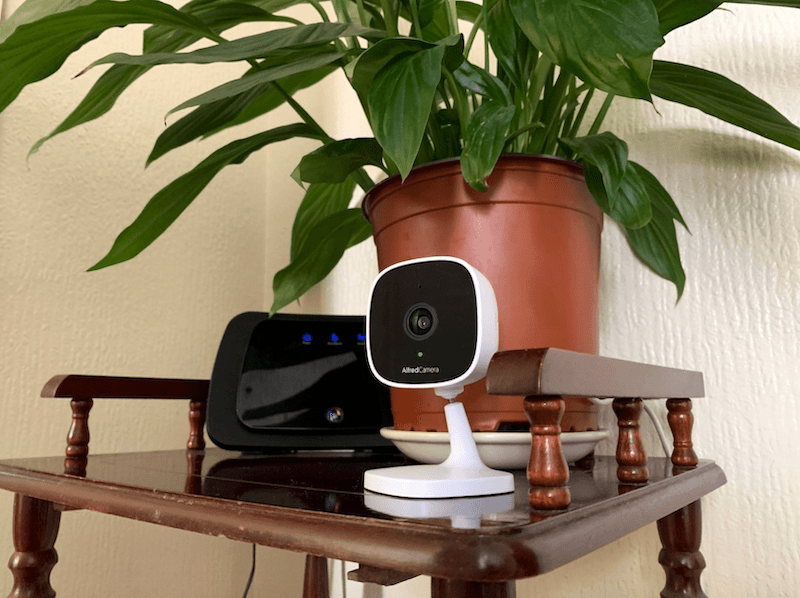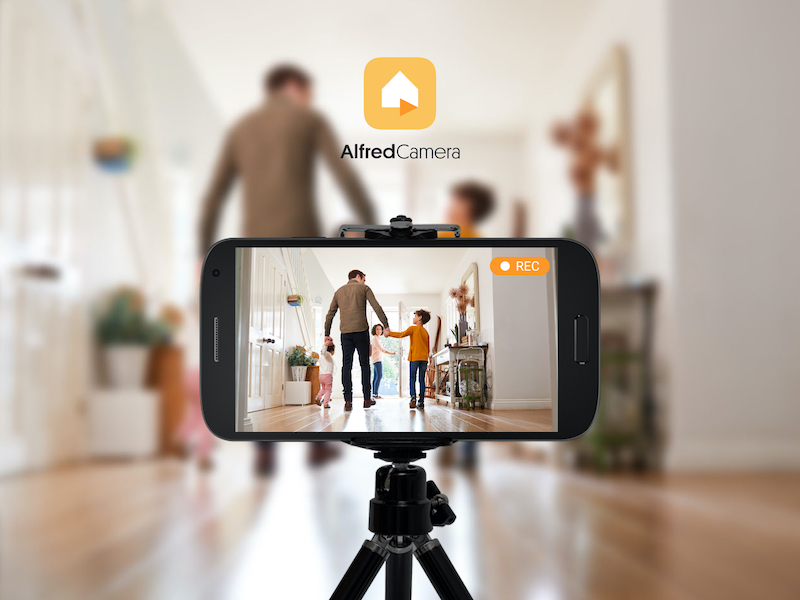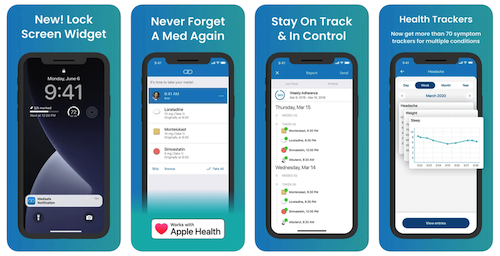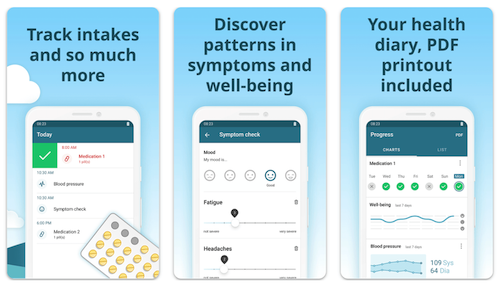This article is part of a series on elderly care. The series provides important information about caregiving practices.
Medication reminders for elderly people may be necessary for the sake of their health. Particularly for people living with dementia, limited mobility, or a terminal illness, taking pills—and taking them on time—can be challenging.
Caregivers and family members may become anxious about whether medication is being taken as prescribed.
Find out how to remind someone to take their medication in a compassionate way, including helping them if they refuse to take it, and discover some of the best free medication reminder apps.
How Do I Remind My Parents to Take Medicine? 5 Tips to Know
Reminding someone to take their medicine is important if they frequently forget, are resistant to taking it, or refuse entirely. Here are 5 medication reminder tips.
1. Schedule a routine
First and foremost, a written schedule that details the exact times pills need to be taken should be created by the caregiver based on the information given on the prescriptions.
Two separate routines can be created–a morning routine and a bedtime routine. If any medicines need to be taken at lunchtime, account for those as well.
In the schedule, specify the contexts for taking the pills; for example, with dinner, water, before teeth brushing, after face washing, and so on. This will help create associations with other regular actions that’ll make it easier to remember to take them.
2. Two-way audio camera
Although some seniors, particularly those with progressed dementia or a terminal illness, will need all medications to be administered by an in-person caregiver, many only need an occasional reminder. This doesn’t require a caregiver to be there physically.
Two-way audio cameras are a useful way to stay in touch virtually. Install in a living room or kitchen, and caregivers can get in touch throughout the day to have a chat and provide reminders.

There are plenty of great alert/notification apps, but chatting back and forth is a much more personal way to offer friendly reminders and keep an eye on seniors.
Stay in touch with AlfredCamera
Having caregivers administer medicines in-person isn’t necessary for all elderly people.
AlfredCamera allows caregivers and seniors to stay in touch in a casual way thanks to two-way audio. Install it on a phone, tablet, or even a PC and easily check in any time that pills need to be taken.
Set up motion detection at specific parts of the day to correspond with scheduled medicine times, and caregivers will be notified when, for instance, someone enters the kitchen to prepare lunch or takes a seat in the living room.
Caregivers can more easily stay on top of all sorts of things with Alfred, including eating habits and how much water is being drank throughout the day.
Download AlfredCamera for free on iOS and Android devices, or learn more about what AlfredCam can do for you in our overview.

3. Pill boxes
A more conventional medical aid for the elderly, pill boxes are great for ensuring the right doses are taken each day.
Usually split into the 7 days of the week, caregivers can easily organize pills in advance, so that they are easier to take and there is no risk of taking too little or too much of a prescribed medicine.
Traditional pill boxes are inexpensive and good for organizing, but pricier pill boxes may include medication reminder devices or an alarm that can be set, which makes them substantially more useful for those that may forget to take medicine.
4. Phone alerts
Rather than dishing out extra on a pill box with an alarm, caregivers might consider installing a medication reminder alarm app on the phone of the person being cared for.
Among the more useful medication aids for the elderly, phone alerts could be scheduled simply using the phone’s native alarm, so that an alarm goes off at set times every single day, or a dedicated pill reminder app could be used.
Best medication reminder alarm app for iOS

This free app is consistently well-ranked on the App Store, and a 4.7 star rating that’s testament to its ease of use.
Although it’s a great medication aid for the elderly, users can easily monitor fertility, birth control, and other kinds of medicines.
It syncs to HealthKit to keep track of blood glucose, blood pressure, and other important health stats.
Best medication reminder alarm app for Android

MyTherapy is a med tracker that goes a little above and beyond the call of duty, combining other features like a mood diary and weight tracker, which might be of use to some people.
For present purposes, it has pill reminders that are easy to set-up. It’s free and well reviewed, with a 4.7 star rating.
Is there a pill reminder app for dementia patients?
Both MyTherapy and Medisafe are great pill reminder apps that’ll be well-suited to people in the earlier stages of dementia. For those in the later stages of dementia, phone alerts may not be appropriate, and a caregiver may need to oversee all medicine intake personally.
Coming to terms with a recent dementia diagnosis in the family? Find out what you need to know.
5. Smart home alerts
If a senior doesn’t use their phone a great deal, another great way to set up reminders to take pills is through a smart device, like a smart speaker or watch.
Much like a phone, a smart speaker can schedule reminders using voice commands, which might be easier to manage than using a screen device for those with limited mobility, poor vision, or an aversion to smartphones.
What to Do When an Elderly Parent Refuses to Take Medication
Much like eating and drinking, sometimes an elderly parent may refuse to take their medication. This can be awkward and difficult for a caregiver to overcome, and stressful for the family.
If an elderly parent refuses to take medication:
Recognize what may be behind their refusal – anxiety and depression may be causing feelings of apathy in regards to medication. Similarly, people diagnosed with dementia may feel aggravated or confused by having to take medication.
Whatever it is, don’t dismiss the person’s refusal as ‘being difficult’. Chat with them and be compassionate–ask how they are feeling, and if something is bothering them.
Mental health problems should always be taken seriously, so never shy away from bringing it up with their doctor.
Offer the drug in a different form – if it becomes apparent that the elderly parent has issues swallowing or even dislikes the taste of the medication, discuss with their doctor about alternative forms of the drug.
Oftentimes, a pill may come in a liquid medicine, or even a patch that can be worn.
Put the medication in tasty food or drink – if the refusal to take medication continues and starts to have a detrimental impact on the person’s health, consider concealing it in food or drink.
Crushing up a pill can alter how the medicine is absorbed and its efficacy, so always consult a doctor prior to doing this to get their approval and guidance first.
They can also recommend food and drink that it can be concealed in.
Source: Alzheimers.org
How do you remind someone with dementia to take medication?
People with a dementia diagnosis may struggle to take medication because it causes feelings of anxiety, distress, or confusion. They may also feel apathetic about taking it, which may indicate poor mental health.
Be kind, compassionate and patient. Consider requesting the drug in a different form, and if they still refuse, it may be necessary to conceal medication in food or drink, so long as the doctor has given their approval.
FAQ
How can I create a pill-taking schedule for an elderly person?
- Gather up the person’s prescriptions, which should detail when and how often the pill must be taken.
- List out all the pills that need to be taken. Establish which need to be taken every day and which don’t. Include any notes, like whether they need to be taken with food or not in conjunction with something else.
- On a separate piece of paper/document, list the pills under ‘Morning’, ‘Lunchtime’ and ‘Bedtime/Evening’ headings as prescribed, ticking off each medication once listed.
- If some medications need to only be taken a few times a week, create the following daily medication chart:
| Mon. | Tues. | Wed. | Thurs. | Fri. | Sat. | Sun. | |
| AMBreakfast | |||||||
| PMLunch | |||||||
| PMBedtime | |||||||
- Buy a pill box with the 7 days of the week on it and put the pills in it in advance of each week beginning.
Are there any tools or apps that can help remind elderly people to take their pills?
Pill boxes are a tried-and-true way to stay on top of taking pills regularly. Apps like MyTherapy and Medisafe are also great ways to remind elderly people to take pills, because they send notifications to devices as scheduled.
What are some creative ways to encourage an elderly person to take their pills?
‘Concealing’ the pills in food and drink can be a way to encourage taking pills in a far more appetizing way, although it’s best to get the go-ahead from their doctor before doing this, because crushing up pills can alter their absorption.
AlfredCamera is a great way for caregivers to check in virtually to provide friendly reminders to take pills over two-way audio. Smart speakers could also be set up to create reminders.
Should I monitor an elderly person to ensure they’re taking their pills as prescribed?
Yes, monitoring an elderly person with their consent can be beneficial if a caregiver suspects they are not taking their pills as prescribed.
How can I make sure an elderly person’s medication is organized and easily accessible?
Arrange the medication into a pill box in advance of the week starting so that it is already organized for the person taking it. If the box doesn’t have a medication reminder device built-in, set alarms or use medication reminder alarm apps to notify them at appropriate times.
Conclusion
Medication reminders are important for keeping health at the forefront of daily life. Monitoring may be necessary for those that regularly miss taking medication, but seniors living with later stages of dementia, terminal illnesses, or significantly reduced mobility will need their medicine administered to them by a caregiver in-person.
Elderly Care Series:
A Guide To Elderly Care For Dementia Patients
20 Essential Elderly Care Supplies for New Caregivers
The True Cost of Elderly Care at Home
Getting to Grips with Levels of Elderly Care
What Are the Types of Elderly Care? The 6 Care Services You Need to Know
9 Effective Elderly Care Tips to Help Your Parents in their Golden Years
